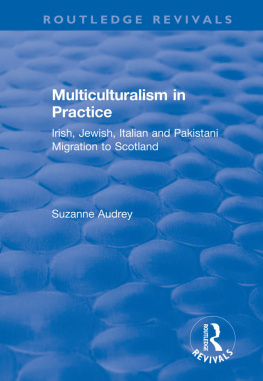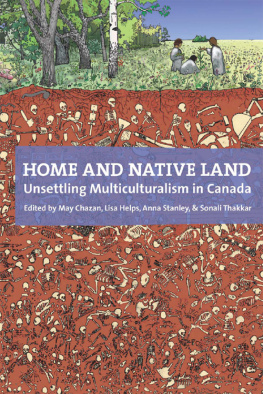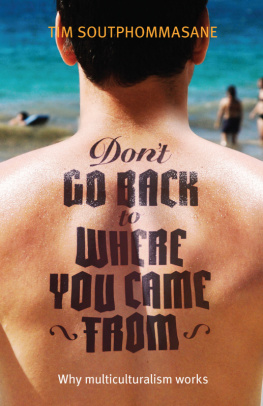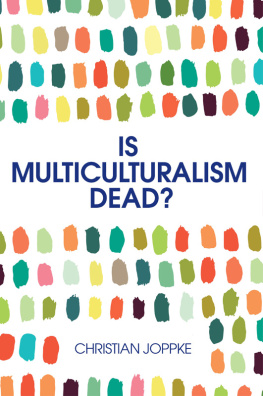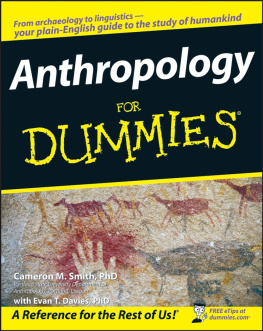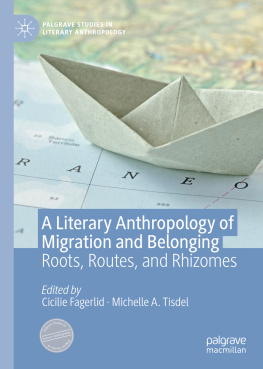
Anthropology of Migration and Multiculturalism
The field of anthropology of migration and multiculturalism is booming. Throughout its hundred-odd year history, studies of migration and diverse or plural societies have arguably been both marginal and central to the discipline of Anthropology. However, recent years have witnessed the rapid growth of anthropological studies concerning these topics. This has particularly been the case since the 1970s, when anthropologists developed a keen interest in the subject of ethnicity, especially in post-migration communities. Since the 1990s, migrant transnationalism has become one of the most fashionable topics. There is still much to do in research and theory surrounding this field, not least with regard to contemporary public debates around multiculturalism, immigration and integration policy.
This book presents essays pointing toward a number of possible new directions both theoretical and methodological for anthropological inquiry into migration and multiculturalism, including innovative ways of examining diversity discourses, urban conditions, social complexities, scales of analysis, transnational marriages, entangled politics and interwoven cultures.
This book was published as a special issue of the Ethnic and Racial Studies.
Steven Vertovec is Director of the Max-Planck-Institute for the Study of Religious and Ethnic Diversity, Gttingen, Germany.
Anthropology of Migration and Multiculturalism
New Directions
Edited by Steven Vertovec
First published 2010 by Routledge
2 Park Square, Milton Park, Abingdon, Oxon, OX14 4RN
Simultaneously published in the USA and Canada
by Routledge
270 Madison Avenue, New York, NY 10016
Routledge is an imprint of the Taylor & Francis Group, an informa business
2010 Taylor & Francis
Typeset in Times by Value Chain, India
All rights reserved. No part of this book may be reprinted or reproduced or utilised in any form or by any electronic, mechanical, or other means, now known or hereafter invented, including photocopying and recording, or in any information storage or retrieval system, without permission in writing from the publishers.
British Library Cataloguing in Publication Data
A catalogue record for this book is available from the British Library
ISBN10: 0-415-49936-4
ISBN13: 978-0-415-49936-1
Contents
Steven Vertovec
Ralph Grillo
Nancy Foner
Steven Vertovec
Thomas Hylland Eriksen
Aye alar
Michael Peter Smith
Katharine Charsley
Louise Lamphere
KATHARINE CHARSLEY is the Departmental Lecturer in the Anthropology of Migration at the University of Oxford.
AYE ALAR is Head of the Department of Sociology and Social Anthropology at the Central European University, Budapest.
THOMAS HYLLAND ERIKSEN is Professor of Social Anthropology and research director of the programme Cultural Complexity in the new Norway at the University of Oslo.
NANCY FONER is Distinguished Professor of Sociology at Hunter College and the Graduate Center of the City University of New York.
RALPH GRILLO is Emeritus Professor of Social Anthropology at the University of Sussex.
LOUISE LAMPHERE is Professor of Anthropology at the University of New Mexico.
MICHAEL PETER SMITH is Professor of Community Studies and Chair of the Community Studies and Development Program at the University of California at Davis.
STEVEN VERTOVEC is Director of the Max-Planck Institute for the Study of Religious and Ethnic Diversity, Gttingen, Germany.
New directions in the anthropology of migration and multiculturalism
Steven Vertovec
It is a kind of boom time for the anthropology of migration. Anthropologists are currently studying a wide range of migration-related topics. Many of them, of course, are not entirely new: anthropologists have been researching migration dynamics and impacts since at least the 1930s (most notably within the Manchester School of anthropology). Since the 1970s the disciplines burgeoning interst in ethnicity has largely entailed research on post-migration communities. Since the 1990s, migrant transnationalism has become one of the most fashionable topics. There is still much to do in research and theory around migration, not least with regard to public debates around multiculturalism. This introduction suggests a number of possible new directions for anthropological inquiry into migration and multiculturalism, and summarizes the special issues contributing articles in light of their contributions toward moving the discipline in these directions.
An excess of alterity? Debating difference in a multicultural society
Ralph Grillo
Debates about the incompatibility of different ways of living are occurring in the UK as in most multicultural societies. These debates, which include diverse voices among both majority and minority ethnic populations, may be observed in public policies, the speeches of politicians and religious leaders, printed media, radio, television, the Internet, in novels, plays and films, and ethnographically in everyday conversations. One point of view, now widely expressed in Europe, is that multicultural countries have become too diverse, and the presence of communities adhering to values at odds with those of Western secular society threaten cohesion. Focusing on the UK, the article examines what has been called a cultural-diversity skeptical turn or backlash against difference, emphasizes the fuzziness of the concepts involved, and proposes that the backlash should be understood inter alia in terms of the problems of the governability of what are, in a neo-liberal, transnationalized ecumene, increasingly fragmented societies.
How exceptional is New York? Migration and multiculturalism in the empire city
Nancy Foner
This article builds on the city as context framework in analysing the way the unique features of particular cities help in understanding the effects of immigration and resulting cultural diversity. The focus is on New York City and on how recent immigration has transformed the social construction of race and ethnicity and the nature of intergroup relations there. New Yorks remarkable ethnic and racial diversity, its immigrant history, and institutions have combined to make it a receiving city, in many ways, like no other in the United States. Multiculturalism, it is argued, has evolved there in what might be called a particular New York way.
Super-diversity and its implications
Steven Vertovec
Diversity in Britain is not what it used to be. Some thirty years of government policies, social service practices and public perceptions have been framed by a particular understanding of immigration and multicultural diversity. That is, Britains immigrant and ethnic minority population has conventionally been characterized by large, well-organized African-Caribbean and South Asian communities of citizens originally from Commonwealth countries or formerly colonial territories. Policy frameworks and public understanding and, indeed, many areas of social science have not caught up with recently emergent demographic and social patterns. Britain can now be characterized by super-diversity, a notion intended to underline a level and kind of complexity surpassing anything the country has previously experienced. Such a condition is distinguished by a dynamic interplay of variables among an increased number of new, small and scattered, multiple-origin, transnationally connected, socioeconomically differentiated and legally stratified immigrants who have arrived over the last decade. Outlined here, new patterns of super-diversity pose significant challenges for both policy and research.




